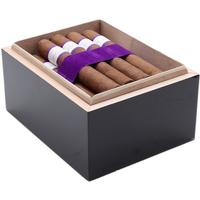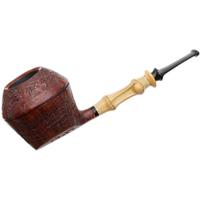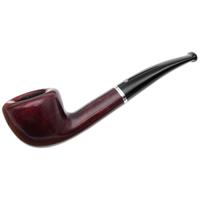Huge Price Increase on MacBaren Tins
- Thread starter beezer
- Start date
You are using an out of date browser. It may not display this or other websites correctly.
You should upgrade or use an alternative browser.
You should upgrade or use an alternative browser.
- Status
- Not open for further replies.
100% agreeEdit: It is in no way similar to government raising taxes. The government does so at the point of a gun with little or no risk. Private enterprise raises prices and risks everything when it does so.
Pat, great insights. There's been a lot of restructuring with the Sutliff/Brigham combo deal. I've not talked to anyone at Mac Baren about this so the following is not an "insider" look at this particular situation. It's more of a general thought when I've seen these things happen in the past.
When a product is discounted so heavily, what happens is that fewer and fewer retailers are able to buy in the kind of quantities required to get a deal themselves and still make a profit. So fewer and fewer retailers carry the product because they can't or don't want to compete in that area, so they find something else (more profitable) to sell, and then you basically have a handful of big retailers that sell the product, and Mac Baren has fewer and fewer retailers interested in their product. And even as big as places like SPC, P&C, etc. are, and even though they have tons of customers, they still can't sell to everyone. Brands are built and sustained in B&M stores, and then the customer goes online (obviously there are exceptions). So if you're in fewer and fewer retail stores, over time you have less and less people exposed to your product initially, and therefore less and less people going online to purchase your product.
In addition, when you only have a few big retailers owning the market, that's not very good for the vendor either. It looks great in the short term because those few retailers are 80% of your business. But when Online Retailer A wants bigger and bigger discounts, you're stuck between a rock and a hard place because you have fewer and fewer retailers to sell to (they abandoned your product long ago), so you have to either give in and accept the deal, or you have to take the chance that the retailer is going to pass on buying for now because they didn't get the deal they wanted, and what vendor wants to pass up a sale of a few thousand tins? The big retailer knows this, and he can stand firm and refuse to buy until the deal is met.
When a product is discounted so heavily, what happens is that fewer and fewer retailers are able to buy in the kind of quantities required to get a deal themselves and still make a profit. So fewer and fewer retailers carry the product because they can't or don't want to compete in that area, so they find something else (more profitable) to sell, and then you basically have a handful of big retailers that sell the product, and Mac Baren has fewer and fewer retailers interested in their product. And even as big as places like SPC, P&C, etc. are, and even though they have tons of customers, they still can't sell to everyone. Brands are built and sustained in B&M stores, and then the customer goes online (obviously there are exceptions). So if you're in fewer and fewer retail stores, over time you have less and less people exposed to your product initially, and therefore less and less people going online to purchase your product.
In addition, when you only have a few big retailers owning the market, that's not very good for the vendor either. It looks great in the short term because those few retailers are 80% of your business. But when Online Retailer A wants bigger and bigger discounts, you're stuck between a rock and a hard place because you have fewer and fewer retailers to sell to (they abandoned your product long ago), so you have to either give in and accept the deal, or you have to take the chance that the retailer is going to pass on buying for now because they didn't get the deal they wanted, and what vendor wants to pass up a sale of a few thousand tins? The big retailer knows this, and he can stand firm and refuse to buy until the deal is met.
That was a long post. I'll have a big LOL when Mac Baren announces this was all due to the Euro.
The solution to the mark-up problem is to not buy the product.
You may miss the taste of your favorite Mac Baren blend for a while,
but Iam sure think you can find something from say, C&D, to replace it at only $9.00 a tin.
You may miss the taste of your favorite Mac Baren blend for a while,
but I
I just went back into my buying history at SP and I paid 10.91 a tin of for Capstan Blue Flake. I was buying 25 tins at a time to get the biggest discount. Now if I wanted 25 tins at a wack today, I would have to pay full retail of 16.15 and I would receive no discount at all. I am glad I stocked up on the Blue Flake when I did as there is no longer a 20% discount on this product.
As peck said, the Brigham Klondike Gold is very simiar in taste and the price for 25 tins of that was 9.13 a tin when I bought it, which is 13 cents higher a tin more than what I paid so it has gone down in price where the Capstan has gone up, very interesting.
As peck said, the Brigham Klondike Gold is very simiar in taste and the price for 25 tins of that was 9.13 a tin when I bought it, which is 13 cents higher a tin more than what I paid so it has gone down in price where the Capstan has gone up, very interesting.
- Status
- Not open for further replies.











 :
: